
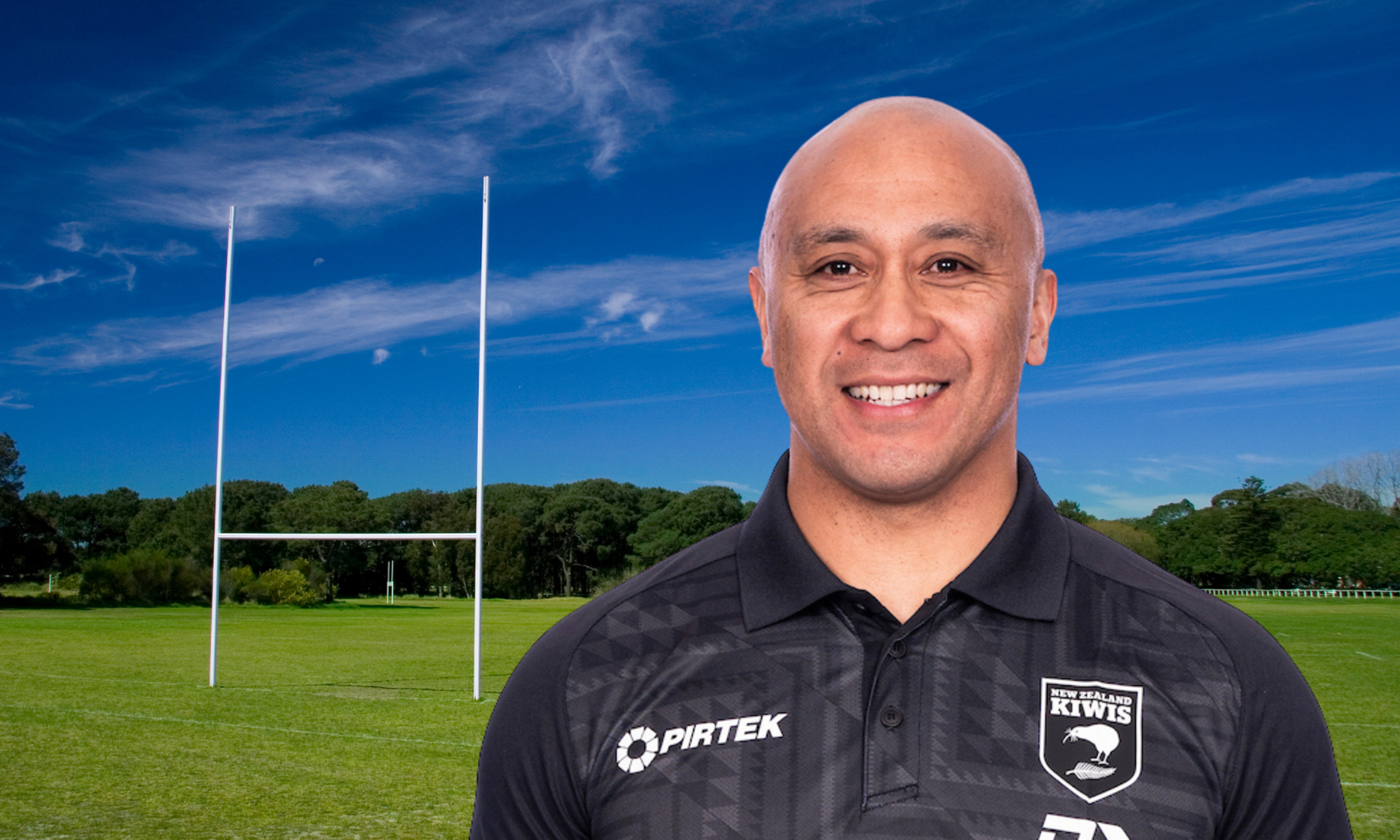
Toleafoa Motu Tony reflects on his varied sporting career.
Photo/Photosport/Joe Allison
Toleafoa Motu Tony: A journey of resilience, faith and community
The former rugby league star reflects on his career, Sāmoan heritage, and values.

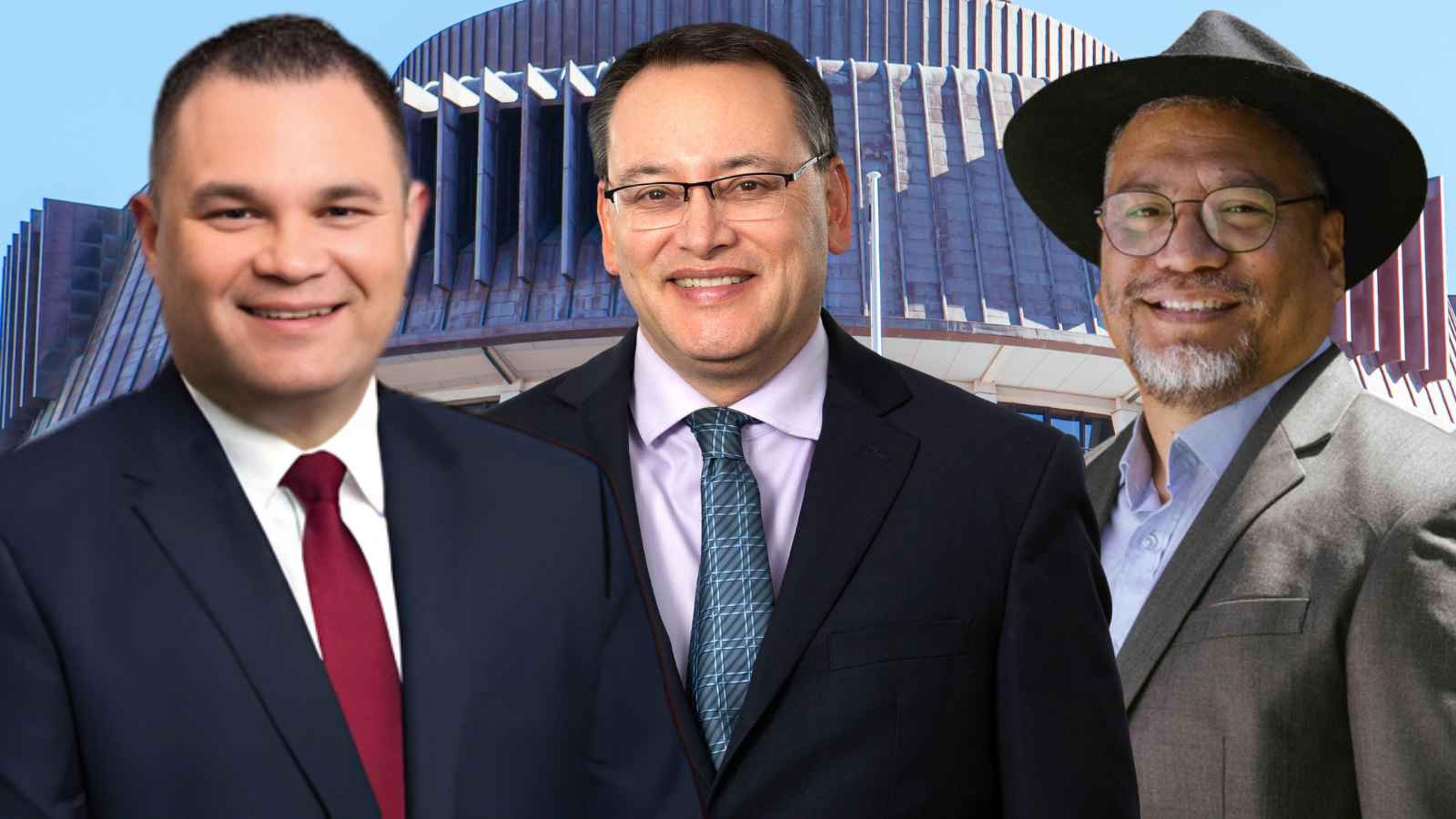
Pacific representation in focus as parties gear up for 2026 election

Pacific researcher warns TikTok myths places gout care at risk

Tokelau election delay exposes fragile Pacific Islands transport links

‘We Are Not Your Dusky Maidens’: Pacific women reclaim their stories

Pacific representation in focus as parties gear up for 2026 election

Pacific researcher warns TikTok myths places gout care at risk

Tokelau election delay exposes fragile Pacific Islands transport links
Former star for the Kiwis and the New Zealand Warriors, Toleafoa Motu Tony, is well-known for his resilience and leadership in the sport, carving out a remarkable journey for himself.
Born in Saleimoa, Sāmoa, and with family ties to Niue, Toleafoa’s sporting career spanned 11 years across teams in New Zealand, Australia, and the United Kingdom.
He made his NRL debut for the Warriors in 2001, followed soon after by representing the Kiwis.
“There's a lot of years and a lot of sacrifices that go into that one game,” he tells Tuilagi William Leolahi on Pacific Huddle. “It's a realisation of a dream, and it's a bit of a payback for all the sacrifices of your parents, your aunties and uncles, your grandparents, your family, your extended family.”
Toleafoa played 55 games for the New Zealand Warriors, including the memorable 2002 NRL Grand Final loss to the Sydney Roosters, before moving on to stints with the Brisbane Broncos and UK clubs Hull FC, Hull RUFC, Whitehaven, and Wakefield Trinity Wildcats until his retirement in 2012.
He says resilience and humility were key to sustaining his career. “When you have a bad game playing for the Warriors or the Kiwis, thousands of people see you have a bad day at the office.
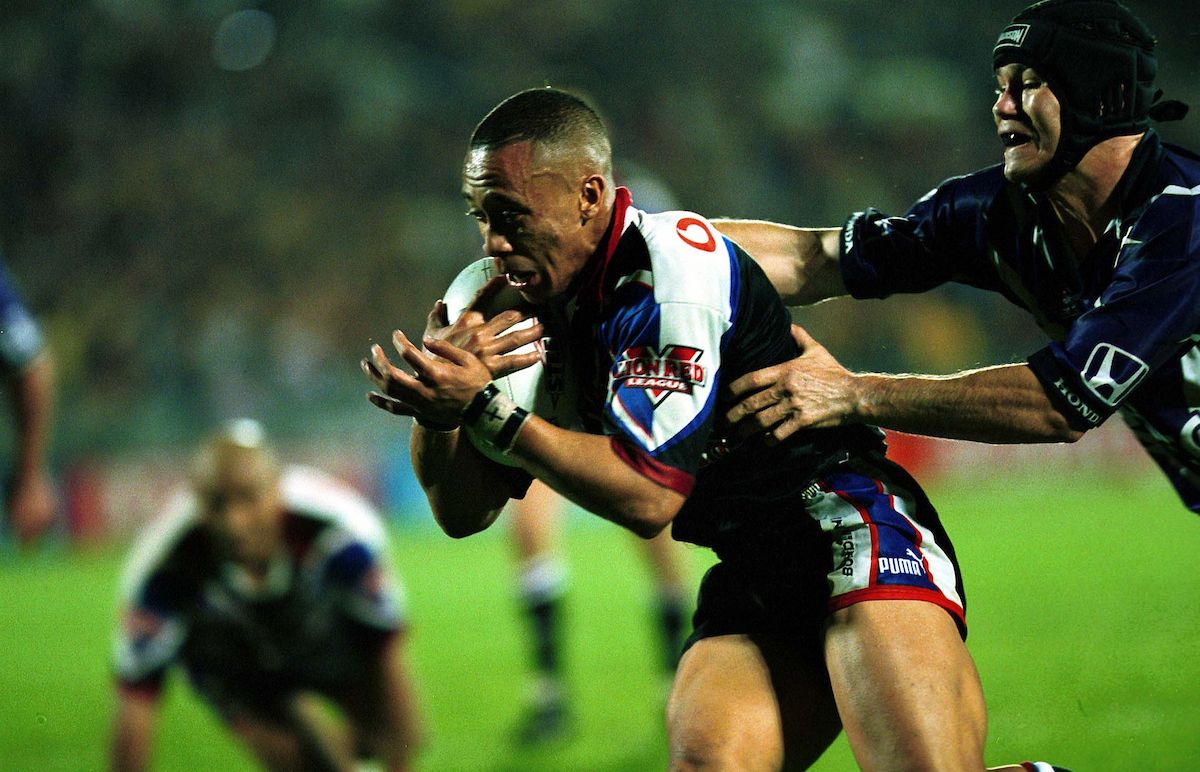
Motu Tony playing for the New Zealand Warriors against the Canterbury Bulldogs in 2001. Photo/Photosport
“So you need to build up that resilience to be able to navigate through those challenges. But once you make it, it doesn't stop there. You've got to keep working hard.”
The 44-year-old grew up in Māngere, Auckland, and credits his high school dream of turning professional to watching rugby legends such as Stacey Jones, Jerry Seuseu, and Ali Lauiti’iti.
“They were playing the game every week and getting paid for it, so that’s when it dawned on me that this could be a career,” he tells Radio New Zealand.
Listen to Toleafoa Motu Tony's full interview below.
Life after sport
While playing in the UK, Toleafoa earned a Bachelor of Arts in Communication and later gained a Master of Business Administration.
“I tried my best not to take it for granted and not be complacent”, he tells Tuilagi. “For me, I was always looking at what was after football.
“There's a quote in the Bible that says where there is no vision, people perish. So that's why I was always looking at what was next.”
After holding governance roles in New Zealand and the UK, Toleafoa became General Manager of Football and High Performance at New Zealand Rugby League in 2018.
In a statement at the time, Reon Edwards, the chair of NZRL, noted that Toleafoa would bring vital high-performance knowledge to the organisation. “As a proven sports leader, administrator and director with almost 20 years’ experience in professional sport as both an athlete and administrator, Motu more than fits the bill.”
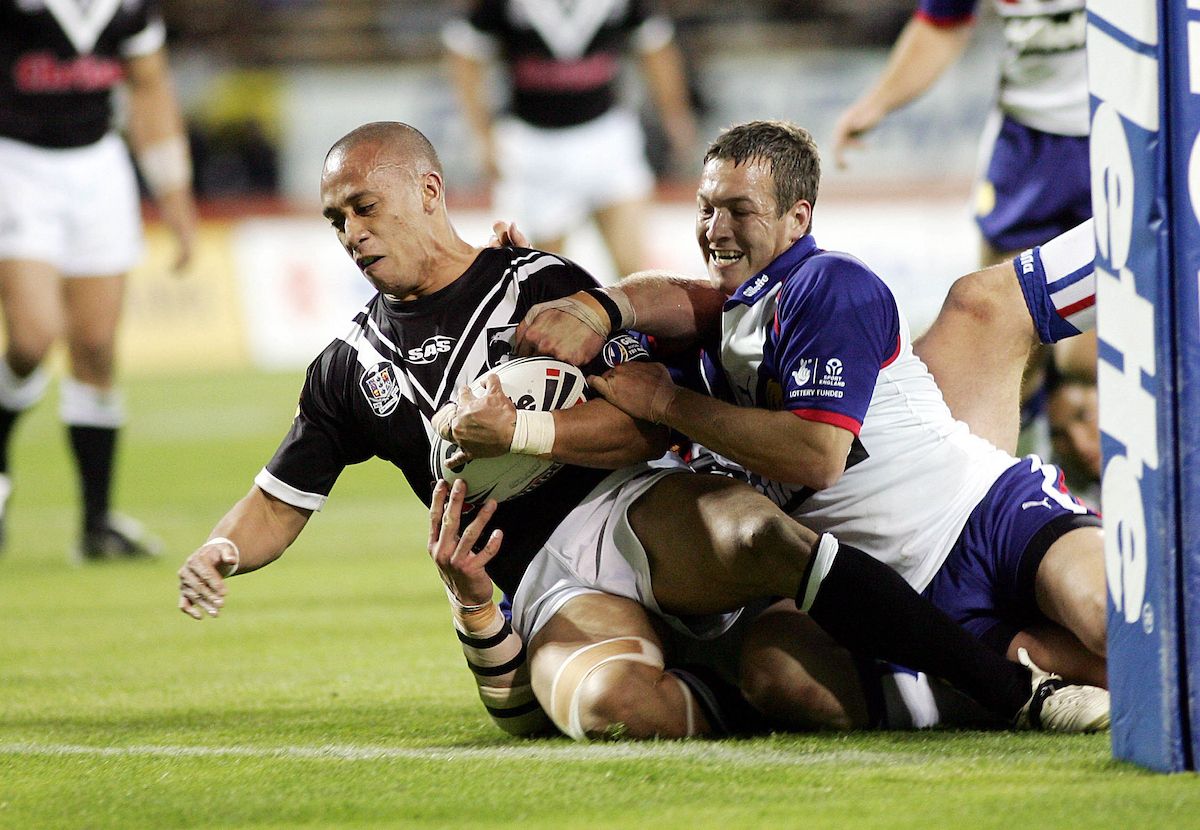
Motu Tony scores for the Kiwis during the Gillette Tri Nations rugby league match between the Kiwis and Great Britain in Christchurch in 2006. Photo/Photosport/Andrew Cornaga
Toleafoa says giving back to communities, including his former school De La Salle, is a major motivating factor for him.
“Rugby league gave my family and I an opportunity to do things that we wouldn't have done if it weren't for the game. For me, it's giving the young people who play our game the same opportunities.”
Player welfare, he says, has improved since his playing days. “If you were having some challenges mentally or emotionally, you were left to your own devices. Now the support services available, not only to players but to the rugby league communities, are amazing.”
Cultural roots
Toleafoa recently received a chiefly title from his grandmother’s village of Lufilufi in Sāmoa.
“It was a real blessing to be able to honour my grandmother in this way,” he says.
“I'm grateful for the sacrifices of our elders and our parents because none of the things that we enjoy now would be possible without them.”
He says Sāmoan values and faith continue to guide him. “It doesn't really matter what the space is, the values, the conduct, the integrity and the behaviour remain the same.
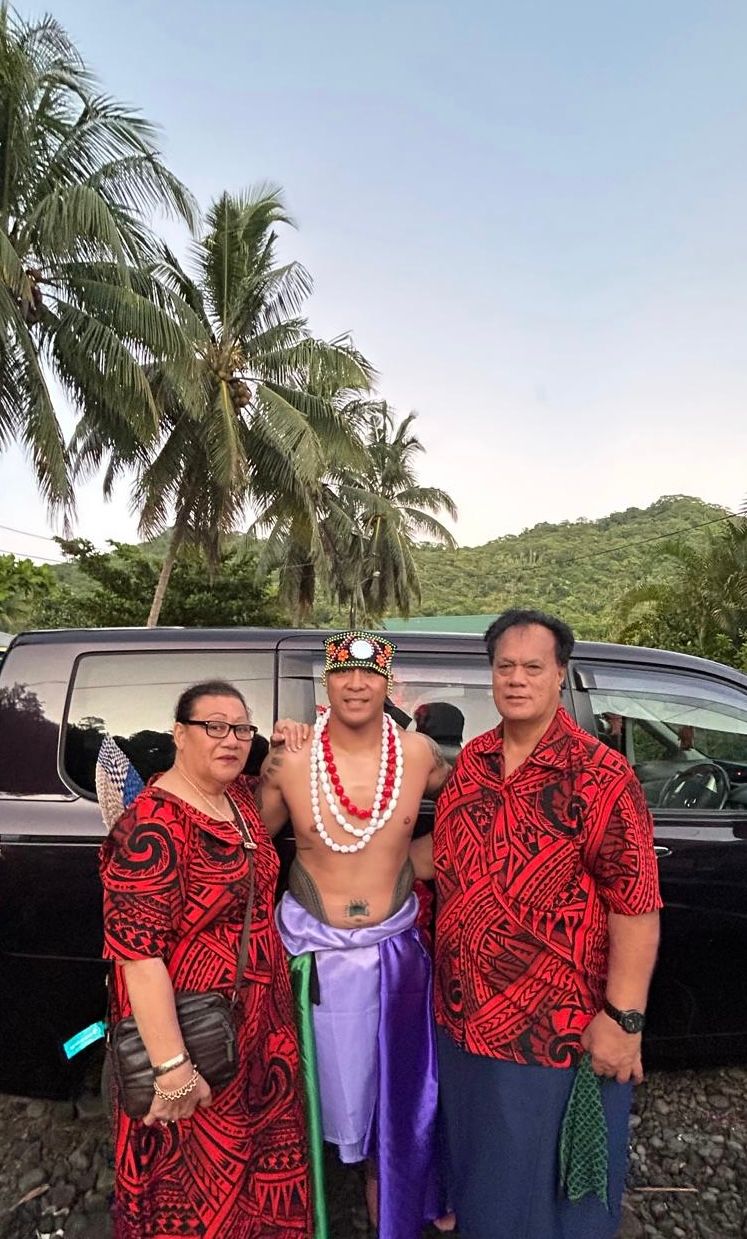
Motu Tony (centre) with his parents, Moemoe and Saitaeao Tony at his matai ceremony. Photo/Supplied
“I consider myself really lucky to be Sāmoan because the values that were instilled into us quite young are the values that make for successful communities and families.”
“The perfect one, the Saviour, was humble and had humility about Him, and we all have to try and emulate those qualities.
“For me, it's just not getting too far ahead of myself and knowing that everything that I've been given and blessed with is from our Heavenly Father.”
Looking back, Toleafoa offers simple advice to his younger self. “Don't eat too much McDonald's or fast food,” he laughs, before turning serious, “If you stay close to the values you learn at home and church, you'll make it in any area of your life.”